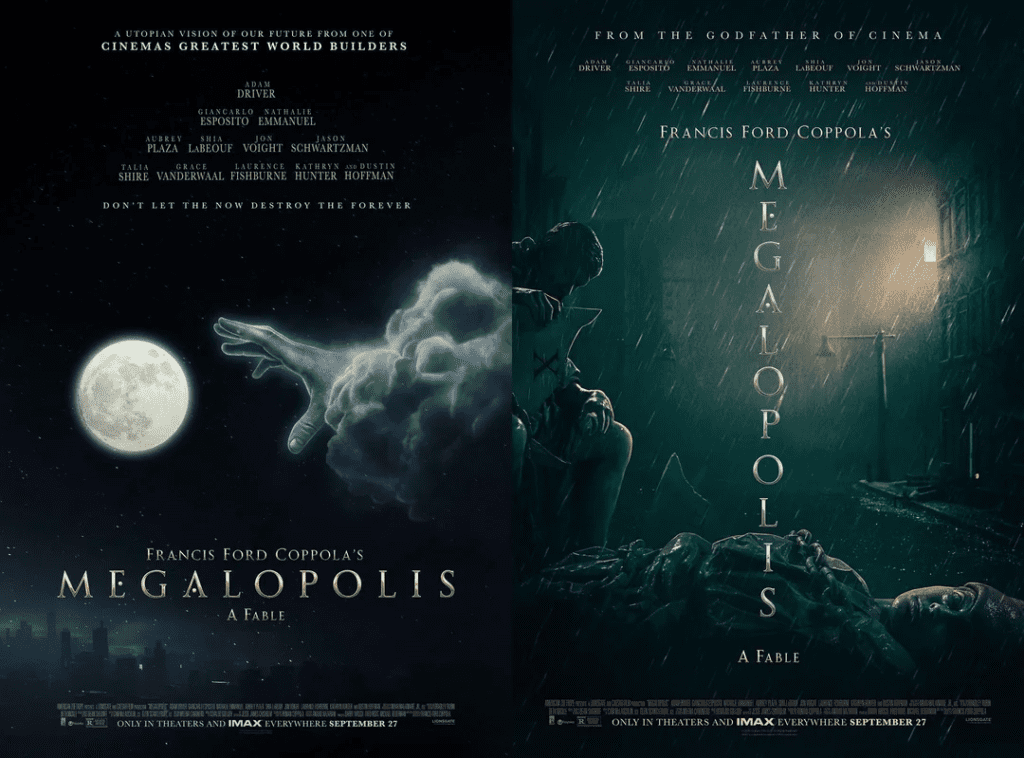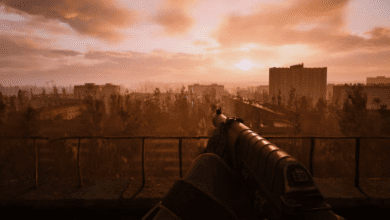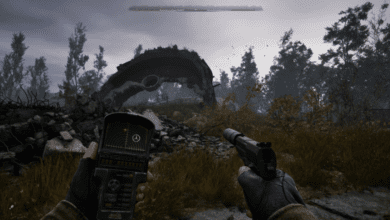Megalopolis Review: Francis Ford Coppola’s Bold, But Flawed Epic Vision
Francis Ford Coppola’s latest film, Megalopolis, may sound like a recipe for cinematic brilliance: a legendary director, a talented cast, and a grand, futuristic narrative. However, despite its towering ambitions, the movie stumbles under the weight of its chaotic storytelling, turning what could have been an extraordinary experience into a frustrating mess. Coppola, whose name is forever etched in the annals of film history with masterpieces like Apocalypse Now and The Godfather, returns with a story that attempts to merge ancient Rome with a futuristic New York City. Unfortunately, this attempt to blend multiple eras, ideas, and themes leads to an incoherent narrative that’s difficult to follow, even for the most dedicated cinephiles.

The Vision: Ambitious But Scattered
Coppola has always been a dreamer, and Megalopolis is his most audacious vision yet. Set in a sprawling metropolis that merges elements of ancient Rome and modern New York City, the film takes viewers on a journey through the eyes of its protagonist, Cesar Catilina, played by Adam Driver. Catilina is an idealistic architect who dreams of rebuilding New Rome with the help of a revolutionary new material called Megalon.
Sounds promising, right? On paper, it certainly does. But as soon as the movie starts to unfold, things begin to unravel. The plot feels like a patchwork of half-baked ideas that never come together in a cohesive way. The film’s attempt to blend various themes politics, romance, power, and futuristic technology leaves the audience grasping for clarity, which never fully arrives.
A Cast of Characters in a Jumbled World
The movie boasts a stellar cast, with big names like Adam Driver, Giancarlo Esposito, Nathalie Emmanuel, Aubrey Plaza, and Laurence Fishburne. However, even this powerhouse ensemble struggles to bring coherence to the sprawling, convoluted story.
Adam Driver’s Cesar is a man driven by big dreams, but the character’s motivations and actions are often as unclear as the plot itself. Driver gives it his all, but even his charisma can’t save Cesar from being bogged down by Coppola’s unfocused script.
Nathalie Emmanuel plays Julia, the daughter of the city’s corrupt mayor, Franklyn Cicero (Giancarlo Esposito). She quickly becomes Cesar’s love interest, though their relationship feels underdeveloped, serving more as a plot device than a compelling narrative thread.
Aubrey Plaza delivers a standout performance as Wow Platinum, Cesar’s off-and-on girlfriend and a bizarre, irreverent television host. Her character feels like she walked in from a different movie an odd mix of Hogwarts-meets-Hollywood but Plaza’s comedic timing and deadpan delivery add much-needed levity to the film’s darker tones.
Giancarlo Esposito’s Cicero, on the other hand, serves as a grounding force in a film that often feels like it’s spinning out of control. Cicero’s pragmatic disdain for Cesar’s idealism offers a stark contrast to the protagonist’s lofty ambitions, and Esposito’s portrayal of the ruthless, power-hungry mayor injects a sense of realism that Megalopolis sorely needs.
The Plot: Shakespearean Inspirations in a Sci-Fi World
At its core, Megalopolis is a Shakespearean drama wrapped in a sci-fi shell. The tension between Cesar and Cicero feels straight out of Macbeth, with echoes of Romeo and Juliet in the romance between Cesar and Julia. But Coppola’s attempt to mix classic literary influences with futuristic storytelling doesn’t quite hit the mark.

The film is filled with metaphors and allegories that are so heavy-handed they often border on the absurd. There’s a scene where massive statues walk through the city, only to collapse in despair—a visually stunning moment that ultimately feels like style over substance. These grandiose gestures and ambitious visuals are impressive, but they don’t make up for the fact that the story itself is muddled and disjointed.
Visuals: Stunning, Yet Overwhelming
Coppola is known for his mastery of visual storytelling, and in Megalopolis, he certainly doesn’t hold back. The film is a visual spectacle, with larger-than-life set pieces, intricate cityscapes, and imaginative use of digital effects. The merging of ancient Roman architecture with a futuristic skyline is striking, offering a fresh take on dystopian world-building.
However, while the visuals are undeniably beautiful, they often overshadow the narrative. Coppola seems more interested in creating a feast for the eyes than telling a coherent story, and as a result, the audience is left dazzled but confused.
In one particularly memorable sequence, Cesar and Julia share a passionate kiss while standing precariously on metal girders floating above the city. It’s a breath taking metaphor for their turbulent romance, but the emotional weight of the scene is undercut by the lack of depth in their relationship. This is a recurring problem throughout the film Coppola creates stunning moments, but they don’t always serve the story in a meaningful way.
Themes: Big Ideas, But No Clear Message
Megalopolis touches on a variety of themes, from political corruption and the clash between progress and tradition, to the power of love and the pursuit of utopia. But while these ideas are introduced, they’re never fully explored. The film feels like it’s trying to say something profound about society and the human condition, but it never quite figures out what that message is.
The character of Cesar represents the dreamer, the idealist who wants to create a better world, but his vision is constantly thwarted by the pragmatists and cynics around him. This tension could have been a compelling exploration of the battle between hope and reality, but the film’s muddled narrative prevents any real emotional payoff.
A Passion Project That Falls Short
Megalopolis has been a passion project for Coppola for over four decades, and that personal connection is evident in every frame of the film. There’s a sense that this is the story he’s been waiting to tell, a grand statement on art, ambition, and the nature of civilization itself. But despite his passion and the film’s lofty aspirations, Megalopolis ultimately falls short of its goals.
For fans of Coppola’s work, Megalopolis may still hold some appeal. It’s a bold, daring film that swings for the fences, and in an era where Hollywood often plays it safe, there’s something admirable about a director willing to take risks. But those risks don’t always pay off, and for many viewers, the film’s incoherent plot and over-the-top visuals will be more frustrating than rewarding.
A Beautiful Mess
Megalopolis is a movie that’s hard to categorize. It’s too serious to be camp, but too bizarre to be taken seriously. It’s a movie that wants to be both a grand epic and a personal statement, but it never quite manages to balance those two impulses.
In the end, Megalopolis is a beautiful mess a film that’s filled with stunning visuals, a talented cast, and ambitious ideas, but one that ultimately collapses under the weight of its own incoherence. It’s a movie that only the most die-hard Coppola fans will likely appreciate, but even they may find themselves wishing for something a little more grounded.
In the world of cinema, as in life, sometimes big dreams don’t come true. And while Megalopolis may not be the triumph Coppola hoped for, it’s still a testament to his enduring passion for filmmaking. After all, even when it doesn’t quite work, it’s hard not to admire someone who’s willing to dream big.





